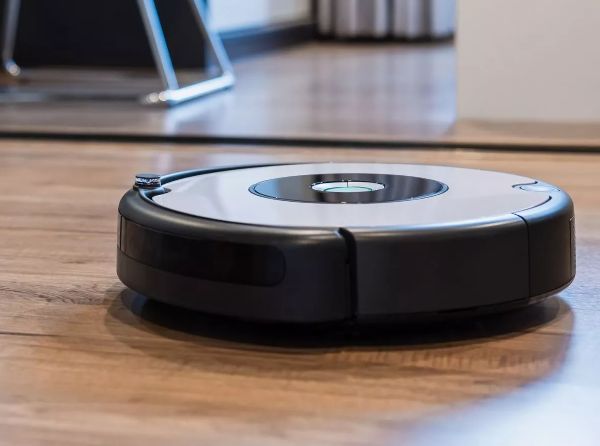Cleaning our homes is a necessary chore, but it can often be time-consuming and tiresome. Thankfully, technology has come to our rescue with the introduction of robot vacuum cleaners.
These autonomous devices promise to take care of the vacuuming for us, offering convenience and efficiency. However, like any product, robot vacuums have their own set of pros and cons.
In this article, we’ll delve into the advantages and disadvantages of robot vacuum cleaners, helping you decide if they are the right cleaning solution for your home.

Pros of Robot Vacuum Cleaners
Convenience and Time-Saving
One of the primary advantages of robot vacuum cleaners is their convenience. These devices operate autonomously, meaning they can clean your floors without your constant supervision. You can set a cleaning schedule or activate them remotely, allowing you to multitask or enjoy leisure activities while the robot does the cleaning for you. This saves valuable time and effort.
Efficient Cleaning
Robot vacuum cleaners are designed to navigate through your home and clean various floor surfaces, including carpets, hardwood, and tile. Equipped with sensors and advanced technology, they can detect obstacles, avoid stairs, and navigate around furniture. Some models even offer mapping capabilities, allowing them to create a virtual map of your home for efficient cleaning patterns.
Versatility and Accessibility
Robot vacuums are designed to access hard-to-reach areas, such as under furniture and along baseboards, where traditional vacuum cleaners might struggle to reach. With their low-profile design, they can glide effortlessly beneath beds, sofas, and cabinets, ensuring a thorough clean in every nook and cranny of your home.
Scheduled Cleaning
Most robot vacuum cleaners offer the option to set a cleaning schedule. This allows you to program the device to automatically start cleaning at specific times or days, ensuring that your floors are consistently cleaned without any manual intervention. You can return to a freshly cleaned home every day.
Allergy-Friendly
Robot vacuums equipped with HEPA filters can effectively trap and remove dust, allergens, and pet dander from the air. This makes them a great option for individuals with allergies or respiratory conditions, as the cleaner air can contribute to improved indoor air quality and overall well-being.
Cons of Robot Vacuum Cleaners
Limited Deep Cleaning Capability
While robot vacuum cleaners are efficient at picking up surface-level debris, they may not offer the same deep cleaning power as traditional upright or canister vacuums. Their smaller size and lower suction power make it challenging to tackle heavy-duty cleaning tasks or deeply embedded dirt in thick carpets.
Price and Initial Investment
Compared to traditional vacuum cleaners, robot vacuums tend to have a higher initial cost. The advanced technology and autonomous features contribute to their price tag. However, as the popularity of robot vacuums grows, prices are becoming more competitive, and a range of models are available at various price points.
Maintenance and Upkeep
Robot vacuums require regular maintenance to ensure optimal performance. This includes emptying the dustbin, cleaning brushes and filters, and occasionally replacing worn-out parts. While these tasks are relatively simple, they still require some level of attention and effort from the user.
Obstacle Navigation
Despite their advanced sensors and obstacle detection, robot vacuums can still encounter difficulties when faced with certain obstacles or cluttered spaces. They may get stuck on wires, rugs with tassels, or struggle to navigate around large furniture. While advancements have been made to improve their navigation capabilities, occasional intervention or repositioning may be necessary.
Noise Level
While robot vacuums have become quieter over the years, they can still produce a noticeable noise while in operation. Although not as loud as traditional vacuum cleaners, the noise level may still be a consideration, especially if you prefer a quieter environment or have sleeping infants or pets at home.
Pros and Cons of Robot Vacuum
| Pros | Cons |
|---|---|
| Convenience and Time-Saving | Limited Deep Cleaning Capability |
| Efficient Cleaning | Price and Initial Investment |
| Versatility and Accessibility | Maintenance and Upkeep |
| Scheduled Cleaning | Obstacle Navigation |
| Allergy-Friendly | Noise Level |
—
Robot vacuum cleaners offer convenience, efficient cleaning, and versatility, making them a popular choice for busy individuals or those seeking automated cleaning solutions. With their ability to navigate obstacles and access hard-to-reach areas, they provide a hands-free cleaning experience.
However, they may not match the deep cleaning capability of traditional vacuums and require regular maintenance. Consider your cleaning needs, budget, and personal preferences when deciding if a robot vacuum cleaner is the right fit for your home. Ultimately, a combination of robot and traditional vacuum cleaners may provide the best cleaning results for different areas and tasks.
